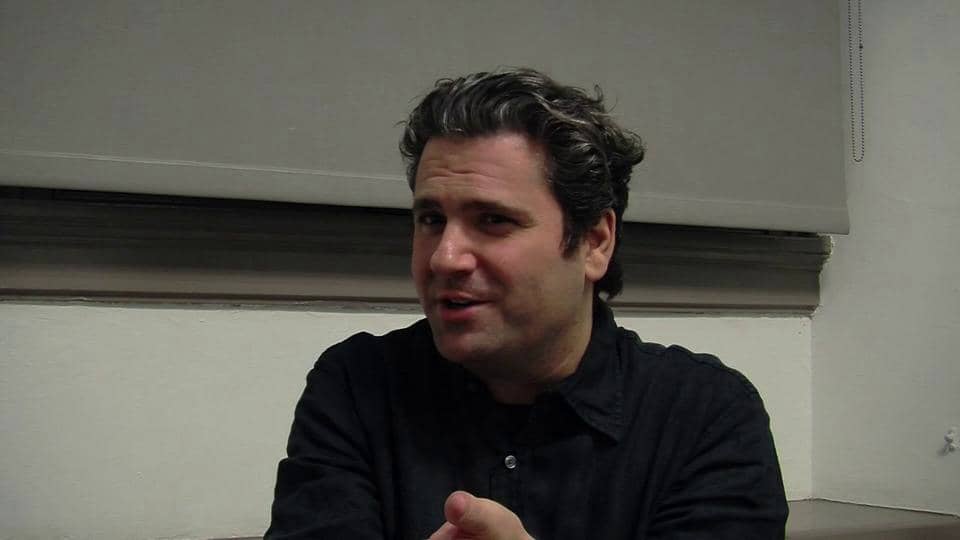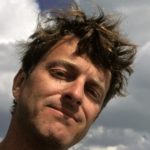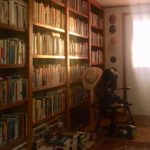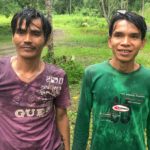Michael Luongo is an award winning freelance journalist and photographer based in New York and living part time in Argentina. His work is focused on Latin America and the Middle East, and he has been to all seven continents and over 80 countries and has reported from Iraq, Afghanistan and Gaza. His specialties include conflict zone travel, business travel, gay travel and other travel topics and human rights issues. His writing and/or photography have appeared in the New York Times, Bloomberg News, Out Traveler, National Geographic Traveler, and many other publications. He was the founding imprint editor for Haworth Press’s “Out in the World” series on LGBT travel literature, where he published Gay Travels in the Muslim World, the only gay themed American book translated into Arabic. He is the author of the Frommer’s Buenos Aires
guidebook, the most popular U.S. published guidebook to the Argentine capital, as well as the author, editor or contributor to other books, including Gay Tourism: Culture, Identity, and Sex
, co-edited with Dr. Stephen Clift and Carry Callister, the first academic book on the gay travel industry. Michael is an adjunct professor at New York University, teaching travel writing, and a frequent guest lecturer and slide show presenter. He advised NBC’s Today Show and ABC’s 20/20 on Argentina coverage, and has been on C-Span’s BookTV.
How did you get started traveling?
I grew up on the fabled Jersey Shore, in a family with 5 kids, and we never went anywhere that was more than a few hours away. That said, my parents were highly educated and we lived in a house with thousands of books, especially Italian art books and archaeological books. I dreamed of visiting every place I ever read about. Once I was in college at Rutgers University, my first adventure was trying to drive from New Jersey to Los Angeles for summer film classes at UCLA. The car only made it to Ohio, so I began a bus-and-plane adventure to the West Coast from there. All the money I made in college was my own, and I spent it all on travel, clothes, and hair care products (I was Italian-American from the Jersey Shore, remember). My sister was married in Greece while I was in college, and that was my first time to Europe, in 1988. Once I started traveling, I couldn’t stop. I got most of the United States and most of Western Europe out of the way while an undergraduate.
How did you get started writing?
I always wrote as a child, and by 12 or 13 I realized it could be something more. Like many, however, I put off trying to do it professionally. Finally, when I turned 30, I decided to finish my novel, The Voyeur. It took years before that was published, but the process of trying to get that published lead to many other forms of writing, and to travel writing, which originally had not been my intention. In summer of 2008 (the year I turned 30), I got a job working for FunMaps, which was a gay travel map company, which put me in touch with gay publications around the world. I had already been a published academic writer in graduate school (again Rutgers University, Bloustein School of Urban Planning, with a research concentration on gay tourism and gay urban space).
What do you consider your first “break” as a writer?
I think my first real break as a travel writer was in 2000 getting the cover of Our World, a no longer existing gay travel magazine. I had left FunMaps to backpack through South America and the editor had me write on Buenos Aires, Rio, Quito and Lima. My first time writing for him and he gave me the cover. I had other publications before, but this was the first time in gay travel writing spheres that I was noticed for my potential by a major editor.
As a traveler and fact/story gatherer, what is your biggest challenge on the road?
I tend to write on more difficult places — often covering the war zones as travel destinations, in terms of tourism rebuilding — and those are not easy areas to cover. But I think that I do a lot of prep work no matter where I go, and Argentina is another place I do a lot of work on, and I live there part time. There are other challenges — logistics, communication, and simply getting exhausted. Travel writing is not a vacation.
What is your biggest challenge in the research and writing process?
I think finding the right people is key. You need to do a lot of prep work. Again, I tend to write about more challenging places. I do believe that once you are on the ground, it usually all falls into place.
What is your biggest challenge from a business standpoint?
Finances are very difficult. Everyone wants to be a travel writer. Millions want to do what I do for free. And I won’t even tell you how many supposedly prestigious publications now are trying to get out of paying their travel writers for copy. It’s shocking and insulting. Some editors don’t make trying to get the work done any easier either. That said, it’s important to do different kinds of work, a variety of work, be flexible, and perhaps now and then have a part time job, and keep one’s expenses at home low. And without my editors, particularly at Bloomberg News, believing in the value of reporting on war zones and rebuilding them from a tourism perspective, there are so many experiences I never would have had.
Have you ever done other work to make ends meet?
Yes, I have had part time copy-editing jobs, temp jobs, teaching jobs, ghost writing and other things. Speaking engagements help a bit too. You really just have to patch it all together.
What travel authors or books might you recommend and/or have influenced you?
Within the gay world think Robert Rodi of Chicago is one of the best writers. He’s not a travel writer, but his descriptions of what it is like to walk on the streets of Chicago and the sensory overload that happens in urban environments is magnificent. I also love the works of Ryszard Kapuściński, a Polish Cold War era journalist. He’s not a travel writer either, but his memoirs on covering things are just incredible. Klara Glowczewska of Conde Nast Traveler is his translator, and whether it’s his talent, hers, or a combination, the descriptions are just amazing. Jason Elliot’s book, An Unexpected Light, on his travels in Taliban controlled Afghanistan is also a wonderful example of traveling through what should be a place of fear and horror, and being able to see the beauty in it, no matter the circumstances. I also love literature of occupation, often in translation, whether about Russians in Afghanistan, the Italians in Libya, or the British in most of the world. These cultural clashes and brutality, often seen through the eyes of the educated, if not misinformed, I think help put into perspective the problems of an America trying to dominate the world as just one more chapter in a never ending world saga. I think to be a good travel writer, with a depth of knowledge, one must read constantly on a destination.
What advice and/or warnings would you give to someone who is considering going into travel writing?
Definitely have money in the bank, think of extra part-time jobs, cut all your expenses to a minimum, find a niche no one else is covering, and be very good and develop your craft. Travel light, take notes, record sounds, video the streets, all kinds of things to help you when you’re sitting and writing. Give lectures, be on panels, go to panels, meet others in the field, surround yourself with a like-minded community. Be prepared to have people love and appreciate your work and loving you as an example of how to live one’s life, and others very mad at you, and trying to bring you down for their inability to do so.
What is the biggest reward of life as a travel writer?
I have done so many wonderful things. I have worn a dab of perfume from the last bottle of perfume Evita used before she died, I rode on top of Juan Peron’s coffin through the streets of Buenos Aires when he was reburied in 2006, and got locked into his tomb for safety from a marauding crowd. I met Queen Rania of Jordan at Jesus’s baptism site, and I have been to both Tora Bora and Bora Bora. I have touched the blown-up fragments of the Bamyan Buddhas and stayed overnight in an Afghan warlord’s mansion. These are things that would never happen to an ordinary traveler.





